- Home
- Joe R. Lansdale
A Fine Dark Line Page 10
A Fine Dark Line Read online
Page 10
“Glad to meet you . . . Wasn’t right at lunchtime, I’d give you a free soda. Come by early mornings, late afternoons, no one’s looking, I’ll make you one.”
Since we were early for lunch, and no one else was in the drugstore, I assumed this was a lie Timothy was telling. I’m sure Callie thought the same, but she didn’t let on. She stayed charming.
“That’s nice of you, Tim. But I am curious about Mr. Stilwind.”
“Figures. You know, he dyes his hair. He looks good for his age, but he dyes his hair.”
“How old is he?”
“Thirties, I guess.”
“That’s not old.”
“It’s pretty old. And besides, he’s got a girlfriend. And he was married once.”
“Have children?”
“I don’t think so, but his girlfriend is young as you.”
“She pretty?”
“Not as pretty as you. But yes, she’s pretty. What do you care about him for? I’m free, white, and twenty-one, and I got a pretty good jalopy, little spending money. Besides, you and me, all we need is the moon.”
“You think?” Callie said.
“Sure.”
“Doesn’t Mr. Stilwind own not only this business, but the movie next door?”
“He owns lots of stuff. Hangs out over there a lot. His girlfriend used to work the concession counter. That’s how he met her. She was a homecoming queen, cheerleader or something. Both. I don’t know. Can you imagine a young girl like that with an old man like that?”
“If I stretch my imagination.”
“Come on, baby, is there a chance for you and me?”
“There’s a chance for just about anything, Timothy.”
“I got prospects, honey. I’m going to go to college next year, if I save enough money.”
“What do you want to be?”
“I want to get an associate’s degree, start my own business.”
“What kind of business, Tim?”
“I haven’t figured that part out yet. But I can tell you this. It won’t end up with me being no soda jerk.”
———
AFTER LUNCH I looked through the drugstore magazine rack, bought Rosy Mae some new movie magazines, bought myself a couple of comic books.
We walked over to the theater James Stilwind owned, the Palace. Or rather Callie walked, and I crutched.
“Tim liked me, didn’t he?” Callie said.
“I guess so.”
“He’s kinda cute.”
“If you like soda jerks. Or in his case, just a jerk.”
“I might get a free soda out of it, maybe an ice cream sundae. But you’re right. He is kind of a jerk.”
“Him and that curl.”
“I thought the curl was cute,” Callie said.
Chester White’s jalopy appeared beside us. He pulled to the curb, parked, slid over to the passenger side and opened the door. The grease on his pompadour shone bright blue in the sunlight. “Callie. How you doin’?”
Callie didn’t answer.
“Hey, sport,” he said. “What happened to you?”
I didn’t answer either.
“Your old man still mad at me, Callie?”
“Yes. And so am I. I’ve heard about all those other girls. And what you did with them, and Jane . . . Well, she got me in trouble. Or so I think.”
“Yeah, I heard about that.”
“You did?”
“Jane told me she did it to get you in trouble. She doesn’t like you. She doesn’t like the other girls either. Hell, she doesn’t like anyone. Her dog won’t play with her unless she’s got a pork chop tied around her neck.”
“You play with her. She have to tie a pork chop around her neck to get you?”
“Sometimes.”
“Yeah, I bet.”
“Hey, she got those things from her brother and put soap water in them. She thought it was funny.”
“She did, did she?”
“I don’t think it’s funny,” Chester said. “She’s sayin’ what’s in it came from me. It didn’t. I don’t dispense soap.”
“It could have been something other than soap. Couldn’t it, Chester?”
“I’m not perfect. Yeah, it could have. It might have, a year ago. But me and her, we don’t see each other now. She’s just jealous I was seein’ you.”
“Since you’re not seeing me now, she won’t have to be jealous anymore, will she, Chester? For that matter, you can go back to doing what you were doing with her. And if you can’t do that, there’s always Mrs. Palm and her five daughters. Good day, Chester.”
“Aw, baby, don’t be that way.”
“Don’t call me baby, Chester. Why don’t you go check the oil in your hair. If you can find a deep-enough dip stick.”
“That’s a low blow, darlin’.”
We started moving again. A moment later the jalopy screamed by us, made a curve almost on two wheels, and was out of sight.
“He still likes me,” she said. “Fact is, I think he likes me more now.”
“You love it, don’t you?”
“I love seein’ how silly men can be. Yes.”
As we neared the theater a sharp red and white Thunderbird pulled up to the curb. The door opened. A tall man who looked like a movie star got out of the car. He had light brown hair and it was longish with a curl like Timothy’s, only more natural-looking. His clothes were sporty and expensive. White coat, tan pants, tan and white shoes.
As he got out of the car, I saw his socks were light blue with dark blue clocks on them.
He went around, opened the passenger door on the Thunderbird, and a woman got out. She had shoulder-length, poofed-out, peroxide-blond hair. She was wearing tight gold pants that quit at the calf, a white shirt with a frilly collar, thick-heeled sandals that strapped high on the ankle. As she came around front of the car, stepped up on the curb, I realized she was quite young.
The man took hold of her arm and marched toward the theater, passing us. He looked at Callie as he did, gave her a smile that was big enough and bright enough and wild enough to belong in a lion’s mouth.
As he passed the ticket booth, he nodded at the lady inside, went into the theater with the blonde on his arm, glanced back over his shoulder at Callie.
“I bet that’s him,” Callie said.
“You mean Stilwind?”
“Uh huh. That’s his girlfriend. The one Tim told us about. Think I’m that cute, Stanley?”
“I think you’re so ugly you’d have to sneak up on a glass of lemonade.”
“Funny, Stanley.”
“I thought Tim said he drove a Vette.”
“Maybe he thought the Thunderbird was a Vette. Maybe he has both.”
“Maybe that’s not him.”
Never having been around that kind of money, I found it hard to imagine having so much you could own two fancy sports cars, a nice plaid jacket, and a pretty blonde.
“I don’t see how he could have done such a thing as you think,” Callie said.
“I don’t think anything,” I said, trying to echo what Buster had taught me. “You’re jumping to conclusions.”
“I’m sure it crossed your mind.”
“I think it’s crossed your mind, and now that you see him, you can’t imagine it.”
“What do you think?”
“He doesn’t look very monstrous, does he?”
“No, he doesn’t.”
Callie walked over to the ticket booth. I stayed where I was, but I could hear her. She said, “Was that Mr. Stilwind?”
The lady at the ticket booth said, “Yes. Do you need to speak to him?”
“No. Thanks.”
She came back. I said, “I heard.”
“I just don’t see how he could have done anything like that. He looks very nice.”
“You mean you’d like to date him.”
“I didn’t say that.”
“Maybe the jerk is right. Girls like nice cars and money. And you’re not
even eighteen. What do you think Daddy would say about that? You wanting to date a grown man.”
“He’d say no,” Callie said. “Or he’d beat him up. Let’s forget it and go home, Stanley. I’m all tuckered out. I think this is one mystery that’s just going to remain unsolved. But there is one good side. You heard what Chester said about the soap water and those awful things. This is just more support for me.”
“Maybe you ought not push it.”
“Oh, no. I want Daddy to believe me completely. And you, like it or not, are my witness.”
I didn’t like it, and that afternoon when we got home, Callie told Mom and Dad what happened with Chester, and I stood there to confirm it.
When she was finished, I saw Daddy let loose with a silent sigh. He patted Callie on the back and went outside.
“He believes me completely, then?” Callie asked Mom.
“He believes you,” Mom said. “I think he’s gone somewhere to cry.”
———
HIS LOOKS don’t mean a thing,” Buster said. “You think all the peoples out there do bad things is ugly? Or look like monsters? Drag they knuckles on the grass? Huh, boy? You think that?”
It was night and we were in the drive-in booth and Buster was showing a picture, an Audie Murphy Western.
“I don’t know. That Bubba Joe, they say he looks mean, and he is.”
“You right about that. But that don’t mean everyone looks mean is bad. Anymore it means anyone looks sweet and kind as Howdy Doody is Howdy Doody. You hear me, boy?”
“Yes, sir.”
“Consider that an important lesson. Looks is nice to look at, but underneath them . . . Well, you don’t never know. Why you think so many men get in trouble with women? Them looks. Man goes for them looks, and underneath them looks you might find you a harpie. You know what that is?”
“No, sir.”
“Evil winged women that torment people. Only difference in my experience with women in general, is they don’t have the wings.”
“You know a lot of stuff, Buster.”
“I’ve forgot more than most people know. Listen here, you really interested in this murder business, ain’t you?”
“I am.”
“Now, kind of playin’, what say I give you a little help on this. Just a little. I can’t get big involved. White folks ain’t keen on a nigger gettin’ into their wood pile.”
———
ALTHOUGH BUSTER OFFERED to help me, he wouldn’t do it until I was off crutches. That took another couple of weeks, and even then I was afraid to put too much pressure on my leg. But after a day or two, I forgot all about it and even took to riding my bicycle that Dad had repaired.
The rules were I was not to go up the hill into the rich section, and if I was going to ride along the highway, it had to be on the grass, or the sidewalk when no one was coming.
One early morning I got up telling my parents I was going to ride my bike, and leaving Nub behind for a change, I rode into town, to the back of the newspaper office where I was to meet Buster.
The office was near the theater Stilwind owned. As I pedaled past it, I looked to see if James Stilwind or his Thunderbird were about. They weren’t.
At the back of the newspaper office, in the brick alley, Buster was sitting on a wobbly bench up against the wall. He was sitting with a lean black man wearing a porkpie hat. The lean man was shaking a cigarette out of a pack of Lucky Strikes.
Between them was a cardboard box. As I rode up, the lean man lit the cigarette with a kitchen match he struck on the brick wall. He said, “They catch me on this, Buster, I’m gonna lose my job.”
“They ain’t gonna miss this stuff. And I’ll bring it back.”
“Well, you better go on with it, let me get back to my janitorin’.”
“Thanks, Jukes,” Buster said.
“Guess you welcome. You my cousin, Buster, but you pushin’ it.”
“Who pulled your ass out of the fire about half a dozen times?”
“Yeah, well, you right. But I still need this job.”
“You got jobs all over the place,” Buster said.
Jukes dropped his cigarette in the alley and stepped on it. “I’m gonna go inside now. You might ought to go on, case one of the newspaper gentlemen comes out the back door and sees two niggers with a white boy.”
“You need to relax, Jukes.” “Yeah, right.”
“Hey, Jukes, for the boy here, hit a note or two.”
“Ah, now.”
“Come on.”
Jukes looked around. “Well, just a couple of notes.”
He took a harmonica from his back pocket, hit a few notes, pulled it from his mouth, and sang:
I got a two-timin’ woman.
I’m one-timin’ man.
She wants to get happy, but she don’t understand.
The harmonica came up, a few notes, then:
She a two-timin’ woman—
I’m one-timin’ man.
He hit a few notes on the harmonica, sang:
She tell Mr. Johnson, what he ought to do.
Mr. Johnson don’t listen.
He don’t care what she do.
It don’t matter darlin’, what you say.
Mr. Johnson, dadgumit, don’t play that way.
The harmonica again. A couple of tap steps. Then:
You say what you want.
You say what you say.
But I done told you darlin’
Mr. Johnson don’t play that way.
Jukes stopped, said, “That’ll do for now. Y’all be careful, hear.”
Jukes went inside.
Buster said, “How’d you like that?”
“Neat,” I said. It would be several years later, thinking back on that song, that I’d truly understand it. I wondered if old Jukes made it up.
“We got to walk, kid.”
He picked up the cardboard box, started off. I followed, pushing my bike.
I said, “Where are we going?”
“We gonna look at what I got in the box.”
“What’s that?”
“You gonna see. I had him puttin’ this together for me for a week or so, waitin’ on that leg of yours to get well. How is it?”
“It feels funny, but it doesn’t hurt.”
“That’s the muscles in it. They hadn’t got no workout till now. That bike ridin’ is the best thing for it.”
“I’m pushing it.”
“Walkin’ won’t hurt you none neither. That’s exercise, ain’t it?”
“Where are we going?”
“The Section.”
“What?”
“Well, you might know it better as Nigger Town. We gonna go to my house and study this stuff.”
10
WE CAME TO a red-brick street where the oaks grew thick and close on either side. When the wind blew the limbs of one tree it tapped against its cousin across the street.
As we walked, on our right, we passed a fenced-in park and a statue of Robert E. Lee on which jet-black crows nested and relieved themselves, splattering it with white goo. I noted that one pile of it had fallen into and hardened over Robert E. Lee’s right eye.
Behind the park was a cemetery containing the bodies of Civil War veterans. On some of the graves were little weather-faded Dixie flags and vases out of which poked the blackened and wilting stems of deceased flowers; on other graves were fresher blooms, among them roses bright as blood.
We hiked on until the street narrowed and there were bricks poking up willy-nilly where the weather had worked them loose and sometimes cracked them. Blades of grass had crept between many of the bricks, fallen over, and turned yellow.
Abruptly, the oaks changed. I realized for the first time the trees on Oak Street, as it was called, those closer into town, were pruned and preened and cared for. But as one went farther down Oak Street, into the Section, the oaks were twisted and some were diseased with blackened knots. All were as neglected as the old brick street.
<
br /> It was the same tone for the colored graveyard that lay on the left side of the street behind the oaks, near where Dewmont Creek ran. There you could see stones leaning left and right. Many had fallen and some were busted. The grass was high and there were sprigs of trees growing, escaped from some stray acorn cast there by wind or a careless squirrel.
“It don’t look as good as that cracker graveyard, do it?”
“Sir?”
“The colored field. Where the colored are buried, boy. It don’t look as neat as that cracker yard where all them Dixie ducks is buried, does it?”
“No, sir.”
“We don’t keep it up. You know why?”
“No, sir.”
“ ’Cause come Halloween, white boys come in and push the stones over and break ’em. We better off not doin’ nothin’. Fixin’ a stone, cuttin’ down that grass, just attracts them fools. Ain’t nothin’ funnier or braver to them boys than pushin’ over some colored’s stone, or throwin’ it in the creek, breakin’ it up. They’re cowards too, boy. Tell you why. They know ain’t no colored gonna do anything to them out in the open, ’cause then you got the Kluxers, or some of their types. That ain’t brave, now is it?”
“No, sir. I guess not.”
“It ain’t. That’s what I’m tellin’ you. Listen to me. I’m learnin’ you somethin’ here.”
Along the street white faces began to disappear, replaced by colored faces. The cars at the curbs and up next to houses were for the most part older, the houses along the way less nice, some of them smaller than our living room back at the drive-in. They peeled paint, flapped porch boards, begged for shingles and window glass, leaned as if in desperate need of rest. There were outhouses out back of homes, no electric lines leading into most.
Sitting on porch steps, or porches, some settled in stuffed chairs from which the insides exploded in puffs of cotton like drooping nuclear clouds, were men, young and old. They wore their worn-out clothes with slouch hats like uniforms. Their faces looked as if they had survived a beating and expected another.
As we walked by one of the men called out.
“Did he follow you home, Buster?”
“He did,” Buster said.
“You gonna keep ’im?”
“Ain’t got no wife says I can’t.”

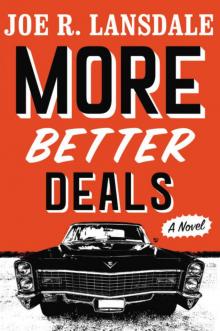 More Better Deals
More Better Deals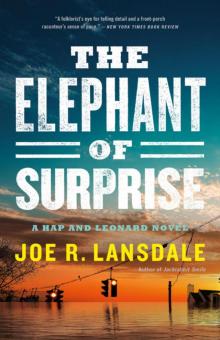 The Elephant of Surprise
The Elephant of Surprise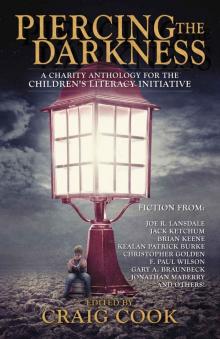 Piercing the Darkness: A Charity Horror Anthology for the Children's Literacy Initiative
Piercing the Darkness: A Charity Horror Anthology for the Children's Literacy Initiative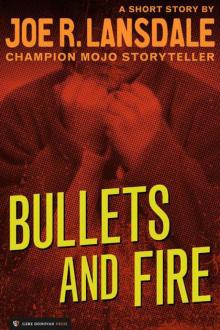 Bullets and Fire
Bullets and Fire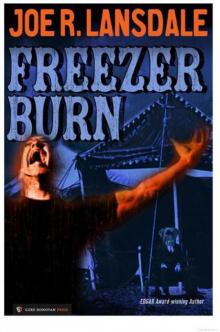 Freezer Burn
Freezer Burn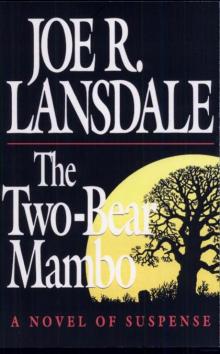 The Two-Bear Mambo
The Two-Bear Mambo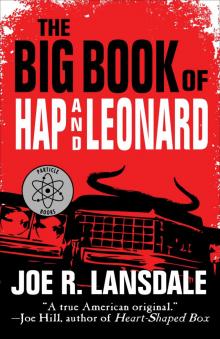 The Big Book of Hap and Leonard
The Big Book of Hap and Leonard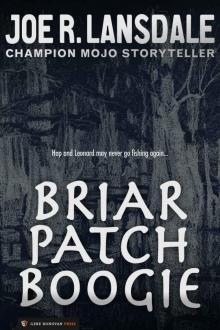 Briar Patch Boogie: A Hap and Leonard Novelette
Briar Patch Boogie: A Hap and Leonard Novelette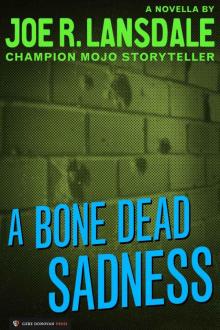 A Bone Dead Sadness
A Bone Dead Sadness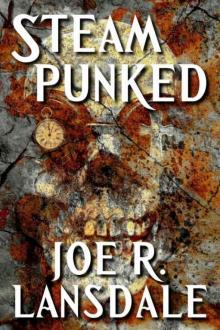 Steampunked
Steampunked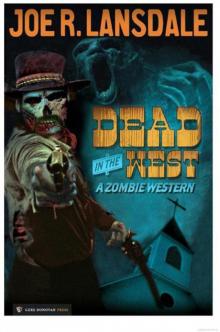 Dead in the West
Dead in the West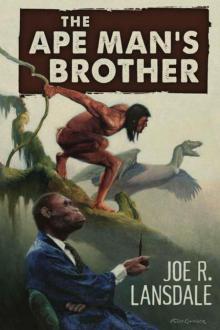 The Ape Man's Brother
The Ape Man's Brother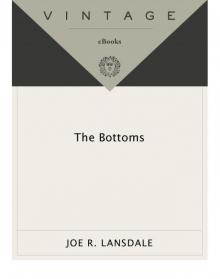 The Bottoms
The Bottoms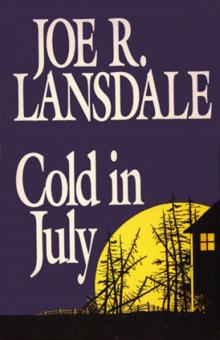 Cold in July
Cold in July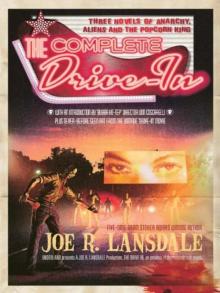 The Complete Drive-In
The Complete Drive-In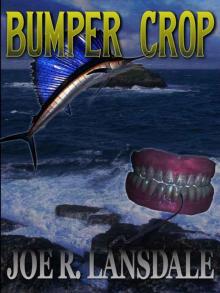 Bumper Crop
Bumper Crop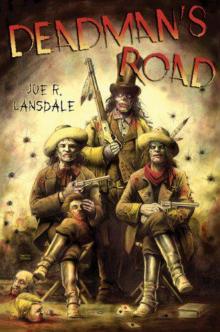 Deadman's Road
Deadman's Road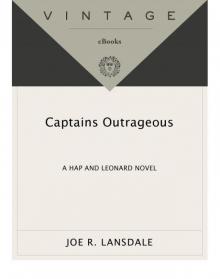 Captains Outrageous
Captains Outrageous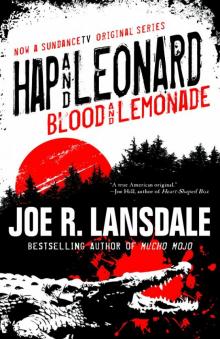 Hap and Leonard: Blood and Lemonade
Hap and Leonard: Blood and Lemonade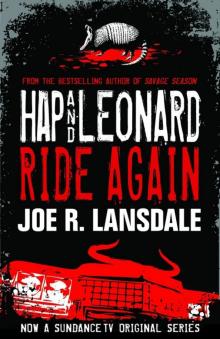 Hap and Leonard Ride Again
Hap and Leonard Ride Again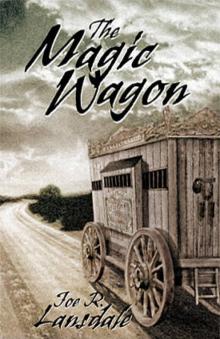 Magic Wagon
Magic Wagon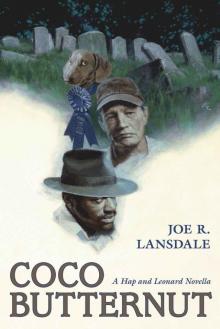 Coco Butternut
Coco Butternut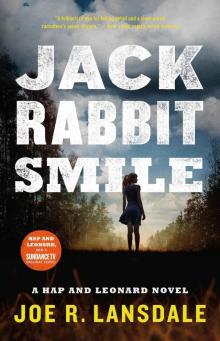 Jackrabbit Smile (Hap and Leonard)
Jackrabbit Smile (Hap and Leonard)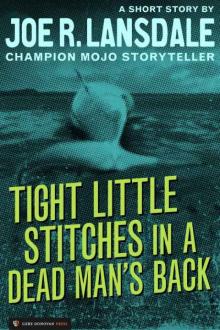 Tight Little Stitches in a Dead Man's Back
Tight Little Stitches in a Dead Man's Back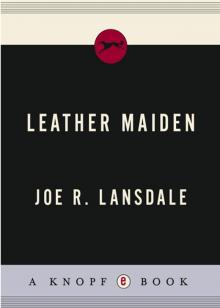 Leather Maiden
Leather Maiden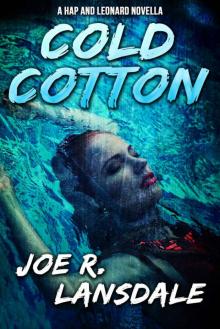 Cold Cotton: A Hap and Leonard Novella (Hap and Leonard Series)
Cold Cotton: A Hap and Leonard Novella (Hap and Leonard Series)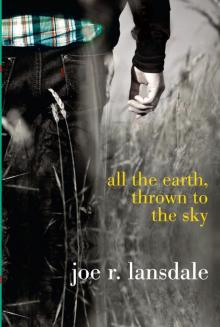 All the Earth, Thrown to the Sky
All the Earth, Thrown to the Sky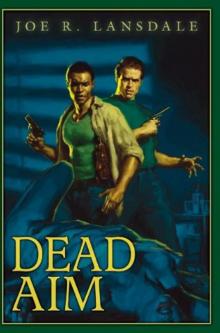 Dead Aim
Dead Aim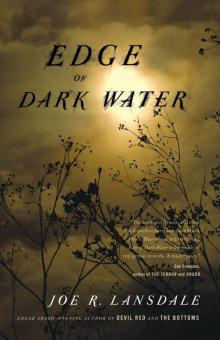 Edge of Dark Water
Edge of Dark Water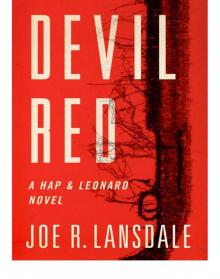 Devil Red
Devil Red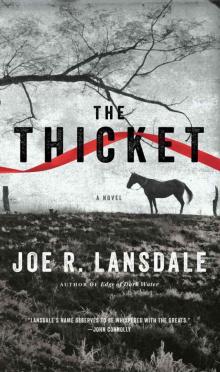 The Thicket
The Thicket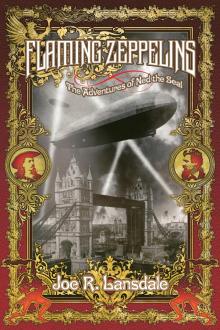 Flaming Zeppelins
Flaming Zeppelins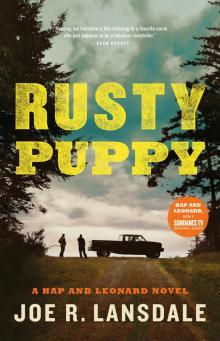 Rusty Puppy
Rusty Puppy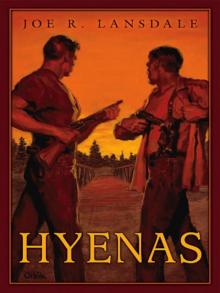 Hyenas
Hyenas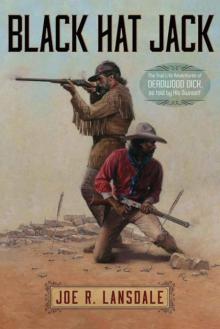 Black Hat Jack
Black Hat Jack Rare Lansdale
Rare Lansdale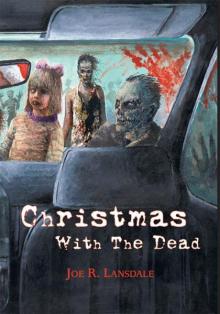 Christmas With the Dead
Christmas With the Dead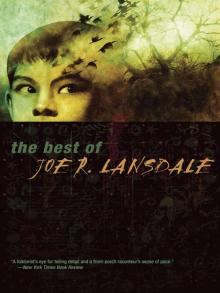 The Best of Joe R. Lansdale
The Best of Joe R. Lansdale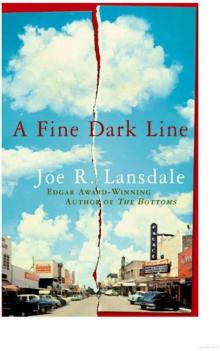 A Fine Dark Line
A Fine Dark Line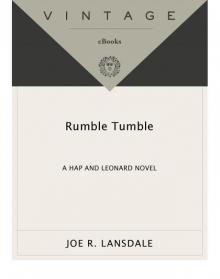 Rumble Tumble
Rumble Tumble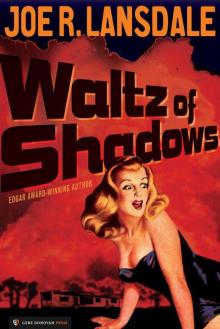 Waltz of Shadows
Waltz of Shadows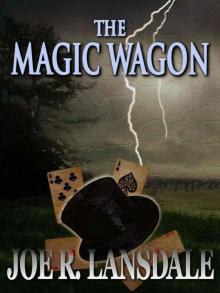 The Magic Wagon
The Magic Wagon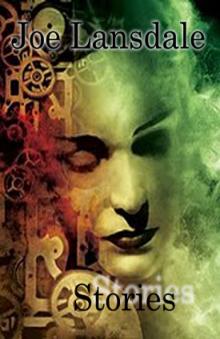 Stories (2011)
Stories (2011)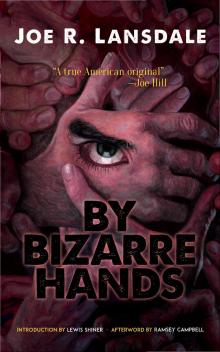 By Bizarre Hands
By Bizarre Hands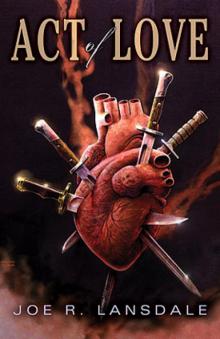 Act of Love (2011)
Act of Love (2011)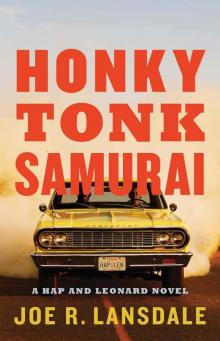 Honky Tonk Samurai (Hap and Leonard)
Honky Tonk Samurai (Hap and Leonard)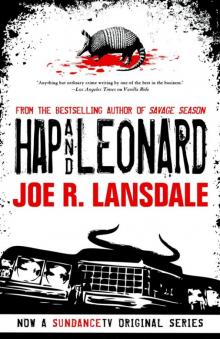 Hap and Leonard
Hap and Leonard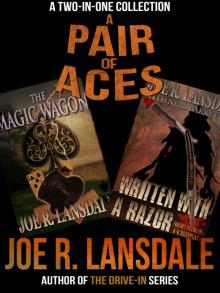 A Pair of Aces
A Pair of Aces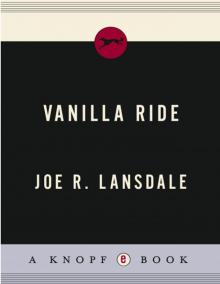 Vanilla Ride
Vanilla Ride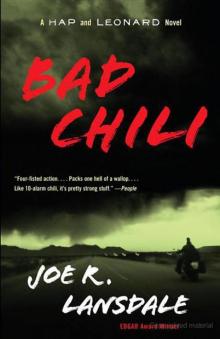 Bad Chili
Bad Chili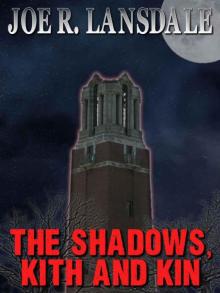 The Killer's Game
The Killer's Game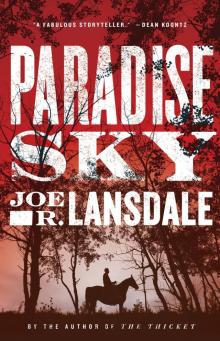 Paradise Sky
Paradise Sky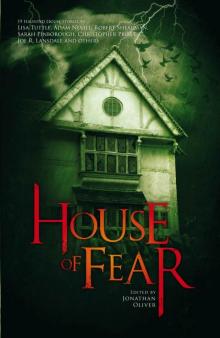 House of Fear
House of Fear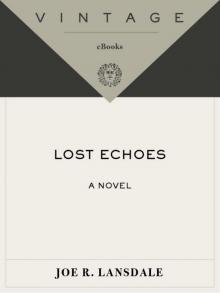 Lost Echoes
Lost Echoes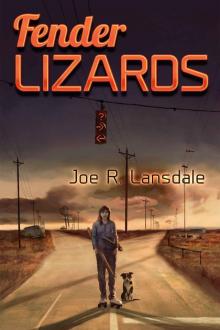 Fender Lizards
Fender Lizards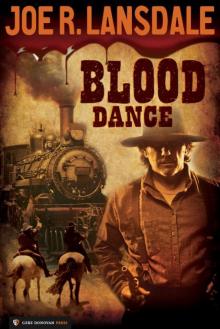 Blood Dance
Blood Dance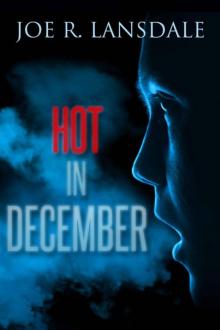 Hot in December
Hot in December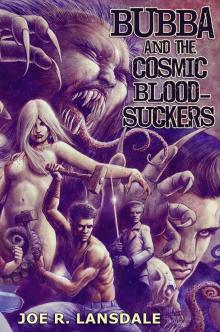 Bubba and the Cosmic Blood-Suckers
Bubba and the Cosmic Blood-Suckers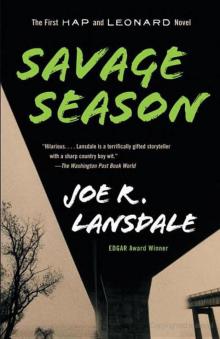 Savage Season
Savage Season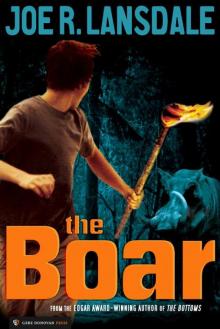 The Boar
The Boar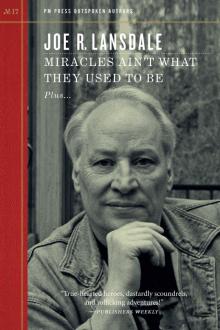 Miracles Ain't What They Used to Be
Miracles Ain't What They Used to Be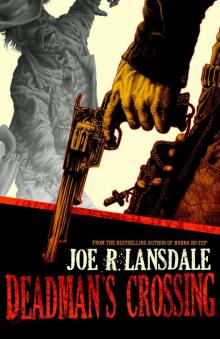 Deadman's Crossing
Deadman's Crossing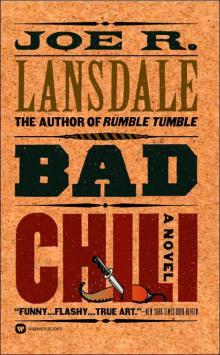 Bad Chili cap-4
Bad Chili cap-4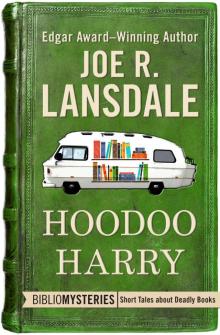 Hoodoo Harry
Hoodoo Harry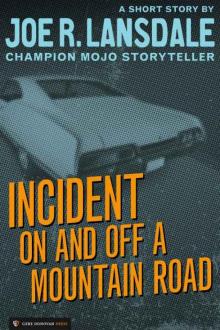 Incident On and Off a Mountain Road
Incident On and Off a Mountain Road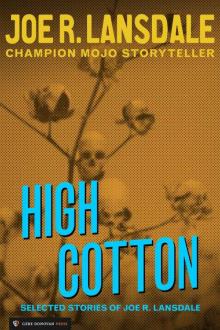 High Cotton: Selected Stories of Joe R. Lansdale
High Cotton: Selected Stories of Joe R. Lansdale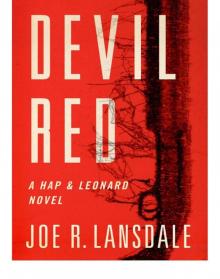 Devil Red cap-8
Devil Red cap-8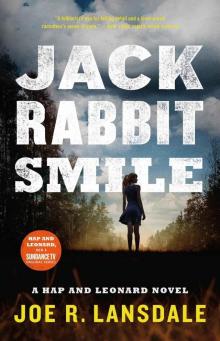 Jackrabbit Smile
Jackrabbit Smile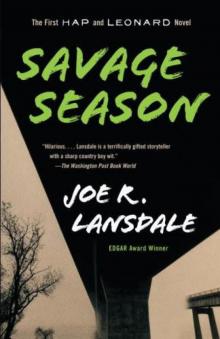 Savage Season cap-1
Savage Season cap-1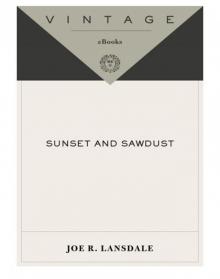 Sunset and Sawdust
Sunset and Sawdust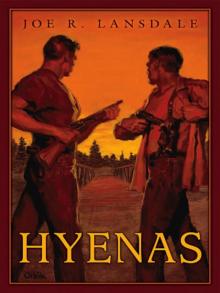 Hyenas cap-10
Hyenas cap-10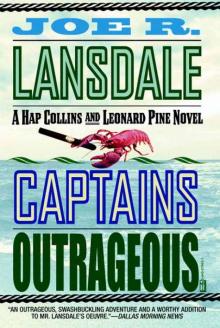 Captains Outrageous cap-6
Captains Outrageous cap-6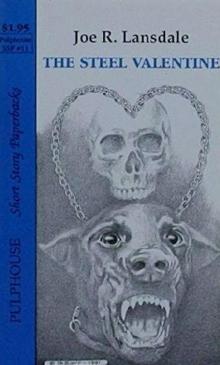 The Steel Valentine
The Steel Valentine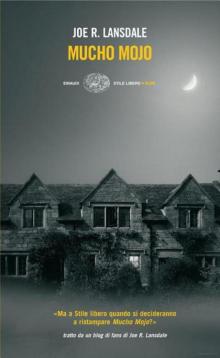 Mucho Mojo
Mucho Mojo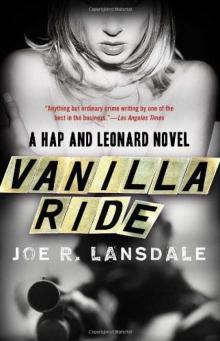 Vanilla Ride cap-7
Vanilla Ride cap-7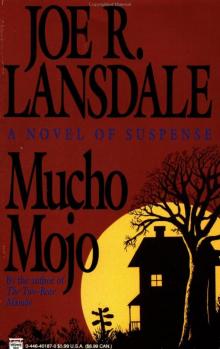 Mucho Mojo cap-2
Mucho Mojo cap-2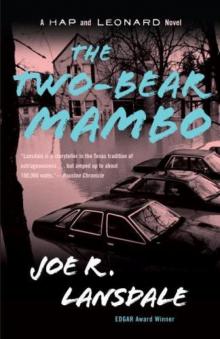 The Two-Bear Mambo cap-3
The Two-Bear Mambo cap-3